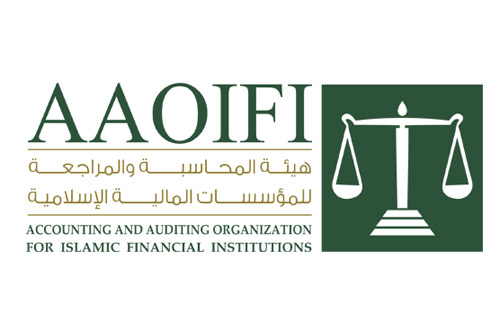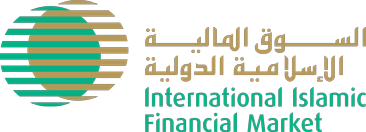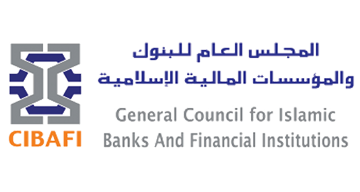Bahrain’s banking system consists of both conventional and Islamic banks and is the largest component of the financial system, accounting for over 85% of total financial assets. There is a total of 376 financial sector institutions in the country as of end of September 2020 including 31 retail banks, 62 wholesale banks, 17 branches of foreign banks and 8 representative offices of banks. These also include 34 insurance companies, 53 investment business firms and 86 specialized licensees.
The banking sector has played a pivotal role in the emergence of Bahrain as a leading financial center in the region. As of July 2020, banking sector assets stood at over US$212 billion, more than five times annual GDP of Bahrain.
Industry growth has been supported by an open market economy, stable and prudent macro-economic and fiscal policies, a credible regulatory framework in line with international standards and a well-qualified local and expat workforce. All these factors have combined to cement Bahrain’s position as a regional banking hub, successfully attracting numerous foreign banking organizations to establish their presence in the country.
Islamic Finance
Bahrain has long been recognized as a global leader in Islamic finance, playing host to the largest concentration of Islamic financial institutions in the Middle East and home to a number of pre-eminent global Islamic standard setting organizations. Islamic financial institutions offering a host of Shari’ah compliant products and services include 6 retail banks, 6 wholesale banks, 2 wholesale branches of foreign banks, 9 Islamic windows of conventional banks, 5 Takaful companies, 1 Re-Takaful companies and 1 Islamic financing company. In addition, Bahrain is at the forefront for issuing Islamic securities (Sukuk), including short-term government Sukuk as well as long term instruments. The Central Bank has played a leading role in the introduction of these innovative products.
The growth of Islamic banking has been remarkable, with total assets increasing from US$1.9 billion in 2000 to US$61.7 billion as of June 2024, an increase of over 32 times. The market share of Islamic banks correspondingly increased from 1.8% of total banking assets in 2000 to 25.3% in June 2024. This growth was made possible by a variety of factors, most importantly the clear vision and approach of the Central Bank of Bahrain and conversion of the conventional banks to Islamic banks. The CBB introduced a separate regulatory framework along with a comprehensive prudential and reporting mechanism for the Islamic segment, tailor-made for the specific concepts and needs of Islamic banking and insurance. The rulebook for Islamic banks covers areas such as Shari’a Governance, licensing requirements, capital adequacy, risk management, business conduct, financial crime and disclosure/reporting requirements. Similarly, the insurance rulebook addresses the specific features of Takaful and Re-Takaful firms. Both rulebooks were the first comprehensive regulatory frameworks that dealt with the Islamic finance industry in the region.
In order to develop the market for Islamic finance and invest in capacity building the CBB was instrumental in establishing the Waqf Fund in collaboration with the industry. Since 2006 the Waqf Fund has been offering programs in Islamic finance training, education and research to cater for the various industry needs. These include specialized programs targeting the Board of Director, senior management, Shari’ah resources and other staff of its member institutions.
Bahrain also plays host to a number of global organizations central to the development of the Islamic finance, including:

AAOIFI, established in 1991 and based in Bahrain, is the leading international not-for-profit organization primarily responsible for development and issuance of standards for the global Islamic finance industry. It has issued a total of 117 standards in the areas of Shari’ah, accounting, auditing, ethics and governance for international Islamic finance. It is supported by a number of institutional members, including central banks and regulatory authorities, financial institutions, accounting and auditing firms, and legal firms, from over 45 countries. Its standards are currently followed by all the leading Islamic financial institutions across the world and have introduced a progressive degree of harmonization of international Islamic finance practices.
Tel: +973 17244496
Email: info@aaoifi.com
Website: http://aaoifi.com

IIFM is a standard-setting body of the Islamic Financial Services Industry (IFSI) focusing on standardization of Islamic financial contracts and product templates relating to the capital and money market, corporate finance and trade finance segments of the IFSI.
TEL: +973 17500161
e-mail: info@iifm.net
website: http://www.iifm.net

CIBAFI is an international organization established in 2001 and Headquartered in the Kingdom of Bahrain. CIBAFI is affiliated with the Organization of Islamic Cooperation (OIC). CIBAFI represents the Islamic financial services industry globally, defending and promoting its role, consolidating cooperation among its members, and with other institutions with similar interests and objectives. It has over 130 members from 34 jurisdictions, representing Islamic Banks, market players, international intergovernmental organizations and professional firms, and industry associations. In its mission to support Islamic financial services industry by being the leading industry voice advocating regulatory, financial and economic policies that are in the broad interest of our members and that foster the development of the Islamic financial services industry and sound industry practices, CIBAFI is guided by its Strategic Objectives, which are 1. Advocacy of Islamic finance Values and related Policies & Regulations , 2.Research and Innovation and 3.Training and Professional Empowerment.
Tel: +973 17357300
Email: cibafi@cibafi.org
Website: http://cibafi.org

The Islamic International Rating Agency (IIRA) has been set up to provide independent assessments to issuers and issues that conform to principles of Islamic finance. IIRA’s special focus is on development of local capital markets, primarily in the region of the Organization of Islamic Countries (OIC) and to provide impetus through its ratings to ethical finance, across the globe.
Tel: +973 17211606
Email: iira@iirating.com
website: http://iirating.com

The BIBF is a semi-government training institute affiliated with the Central Bank of Bahrain, established in 1981. The Centre for Islamic Finance focuses on operations, products, services and professional qualifications. The Centre offers the oldest Islamic finance professional qualification in the world – the Advanced Diploma in Islamic Finance (ADIF), which also is the only such Islamic finance qualification with a progression route into a UK MBA. The Centre also provides advisory and technical services to clients wishing to structure Islamic products or gain access to the Middle East capital markets or who need governance and regulatory framework development assistance.
Tel: +973 17815555
Email: info@bibf.com
Website: https://www.bibf.com
The Waqf Fund
The Waqf Fund was established in November 2006 under the auspices of the Central Bank of Bahrain (CBB) in partnership with financial institutions offering Shari’ah compliant banking services in Bahrain. The member institutions made contributions to the Waqf Fund’s corpus which is invested in Islamic money market instruments and the return is used to finance the Fund’s initiatives. These initiatives are executed through partner organizations such as Bahrain Institute of Banking & Finance (BIBF). The Waqf Fund’s mandate is to serve its 22 member institutions through development initiatives and activities in Islamic finance training, education and research.
The Waqf Fund has a Board of Trustees comprising of 13 members. Mr. Khalid Hamad Al-Hamad, CBB’s Executive Director Banking Supervision, has been the founding chairman of the Board. The other members include representatives from member institutions and three independent members. The Board meets regularly to decide, based on industry experience and feedback, which initiatives to launch for the benefit of its member institutions.
For any enquiry, please click here
